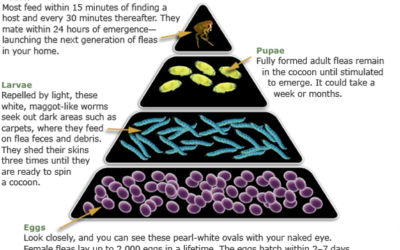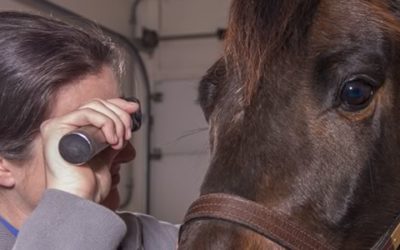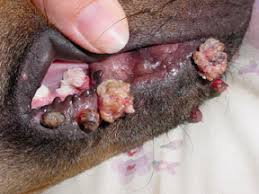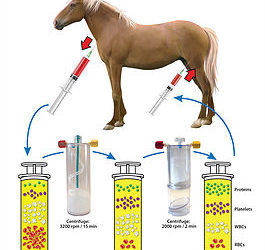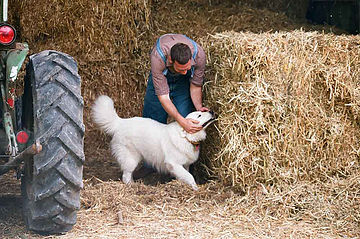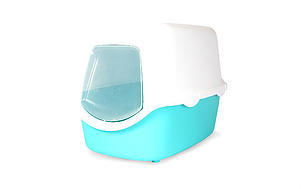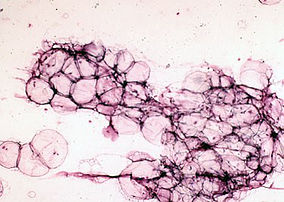Education Materials
Flea Control Guide
How to Look for Fleas on Your Pet Examine your pet's coat carefully. Using a fine-toothed comb (flea comb), look for adult fleas, or for specks that look like pepper (flea dirt). The most common areas to find fleas/flea dirt are the groin, armpits, tailhead, and the...
Equine Euthanasia and What Comes Next
Making the decision to euthanize an equine companion is never easy. Even if the time may be right for our horse, it may not feel like the right time for us to be saying goodbye to our friend. The end of a beloved horse's life can be a very difficult time. Not only are...
Hay Analysis
Hay is a crucial part of an equine diet in the Midwest, and its nutrition content can play a big role in what grain and supplements your horse may or may not need. When creating a nutrition plan for your horse(s), we recommend a hay analysis. A hay analysis is easy to...
How-To: Giving Subcutaneous (SQ) Vitamin B12 Injection
Take a new syringe from the package (syringes are single use only, call or visit us to get refills on syringes when needed) Draw up 0.25ml of the red Vitamin B12 solution (measure from the top of the black plunger). Pull up the skin between the shoulder blades to...
How-To: Giving a Pill to a Cat
One thing to keep in mind is that cats will do their best to make pilling difficult. Cats are not too fond of having their mouths pried open, let alone allowing you to insert a pill in their mouth. Some cats will salivate excessively, so it is very important that you...
Strategic Deworming of Horses
The way it used to be: Traditionally, horses were dewormed every couple months using a rotation of different dewormers. Daily feed-through dewormers were also utilized. However, newer research has shown that large strongyles (which used to be prevalent, and the target...
What is a Coggins Anyway?
What is a Coggins Test? A coggins is a test for equine infectious anemia (EIA) which is a viral disease. Facts about EIA EIA is spread by blood-feeding insects such as horseflies, stable flies , and deer flies. It can also be transferred in utero, or via equipment or...
Simple Conjunctivitis or Something Worse?
What is conjunctivitis and how do I recognize it? Conjunctivitis is where the tissues surrounding the horse's eyes become irritated by allergens, excessive dust, flies, injury, or a combination of irritants. The eyes appear red and watery and often the nasolacrimal...
The Buzz About EEE and WNV
The Buzz About EEE and WNV There has been a recent resurgence in mosquito-borne diseases in Wisconsin over the last few years, and it has become even more vital that horse owners vaccinate against both Encephalitis and West Nile Virus. Last year, there were 24 cases...
Toxic Plants to Horses
There are many poisonous plants in Wisconsin that could be a potential hazard to horses. These plants may cause symptoms such as: Colic Muscle weakness Incoordination Depression Paralysis Death Undesired plants can be eliminated in pastures by several methods,...
Senior Pet Care
There are many changes that can occur in our pets as they age. These changes may require us to care for them differently than we may have when they were younger. This guide is intended to help you recognize the signs or symptoms common in our senior pets and ways to...
Anaplasmosis: Your Guide to This Tick-Borne Disease
Anaplasma phagocytophila (formerly Ehrlichia equi) is a tick-borne disease which causes Equine Granulocytic Ehrlichiosis. This non-contagious disease is transmitted by the deer tick or blacklegged tick called Ixodes scapularis. (In western states it is also...
Viral Papillomas
Viral papillomas in dogs are small growths on the lips, gums, around the eyes or on the toes. They are hairless growths that have the appearance of tiny clusters of fingers or fronds. These lesions are most common in young dogs. Papilloma lesions are caused by a...
Alternatives to Declawing
Scratching is a normal behavior of cats. Scratching allows cats to exercise, mark territory, condition the claws, stretch, and defend themselves. Many cats can be trained to scratch only on appropriate surfaces. In some cases, cats may excessively scratch or scratch...
Pro-Stride: A Natural, Drug-Free Treatment for Joint Pain and Arthritis
Lodi Veterinary Care is excited to now offer the latest in regenerative medicine, a treatment called Pro-Stride. Pro-Stride is an Autologous (meaning of the same individual) Protein Solution used to treat joint inflammation and arthritis. It is created by collecting...
Equine Ultrasonography in Equine Practice
We are very excited to have acquired a new ultrasound machine! Ultrasound has many valuable applications in the field of equine veterinary medicine. A few of the more common uses include: Reproductive: Ultrasound can be used to visualize the mare’s reproductive tract...
Detecting Infection with Serum Amyloid A
There is now a quick, stall-side test to know if your horse has an infection. A new tool in our box called Serum Amyloid A by StableLab is useful for veterinarians to check levels of a protein found in the blood called Serum Amyloid A. Serum Amyloid A (SAA) is a major...
Foal-Season Ready!
We recommend planning for breeding season early - even as early as December! This will help make things as stress-free and seamless as possible. Every year Lodi Veterinary Care rechecks mares for pregnancy, and we recommend doing this as early as January. Of the mares...
Canine Allergies
What are allergies? An allergy is an abnormal reaction of the immune system. Normally, the immune system fights off foreign agents like bacteria and viruses to protect the body. In an animal with allergies, the immune system is reacting in an abnormal way to...
Antiparasitic Resistance in Cattle, Small Ruminants, and Horses in the U.S.
Parasite resistance has become a growing problem in grazing animals such as cattle, goats, sheep and horses. We recommend watching the video below to learn a little more about parasite resistance and how it could affect your herd. The video, which was released by the...
Conservative Management of Arthritis
Weight Control Maintaining a healthy weight may be the most important element in assuring the best possible quality of life for a dog with osteoarthritis. Body weight not only increases the load on all joints, but inflammatory proteins produced by fat cells can cause...
Feline Litter Box Management Guidelines
There are many reasons why your cat may urinate/defecate inappropriately outside the litter box. Our friendly feline companions may eliminate inappropriately due to medical or behavioral reasons. If any inappropriate elimination, urination or defecation, is observed,...
Lipomas in Dogs
Lipomas are very common, benign growths in dogs. They are seen less frequently in cats. These growths consist of fat cells and can range in size from very tiny to ten or more inches in diameter. The most common areas to find lipomas are under the skin in the regions...
Feline Housesoiling
Resolving house-soiling problems may require making changes to several aspects of a cat’s home environment and care. All the changes are interrelated. They will help to provide the optimal litter box/tray and decrease stress by meeting the cat’s other social and...

